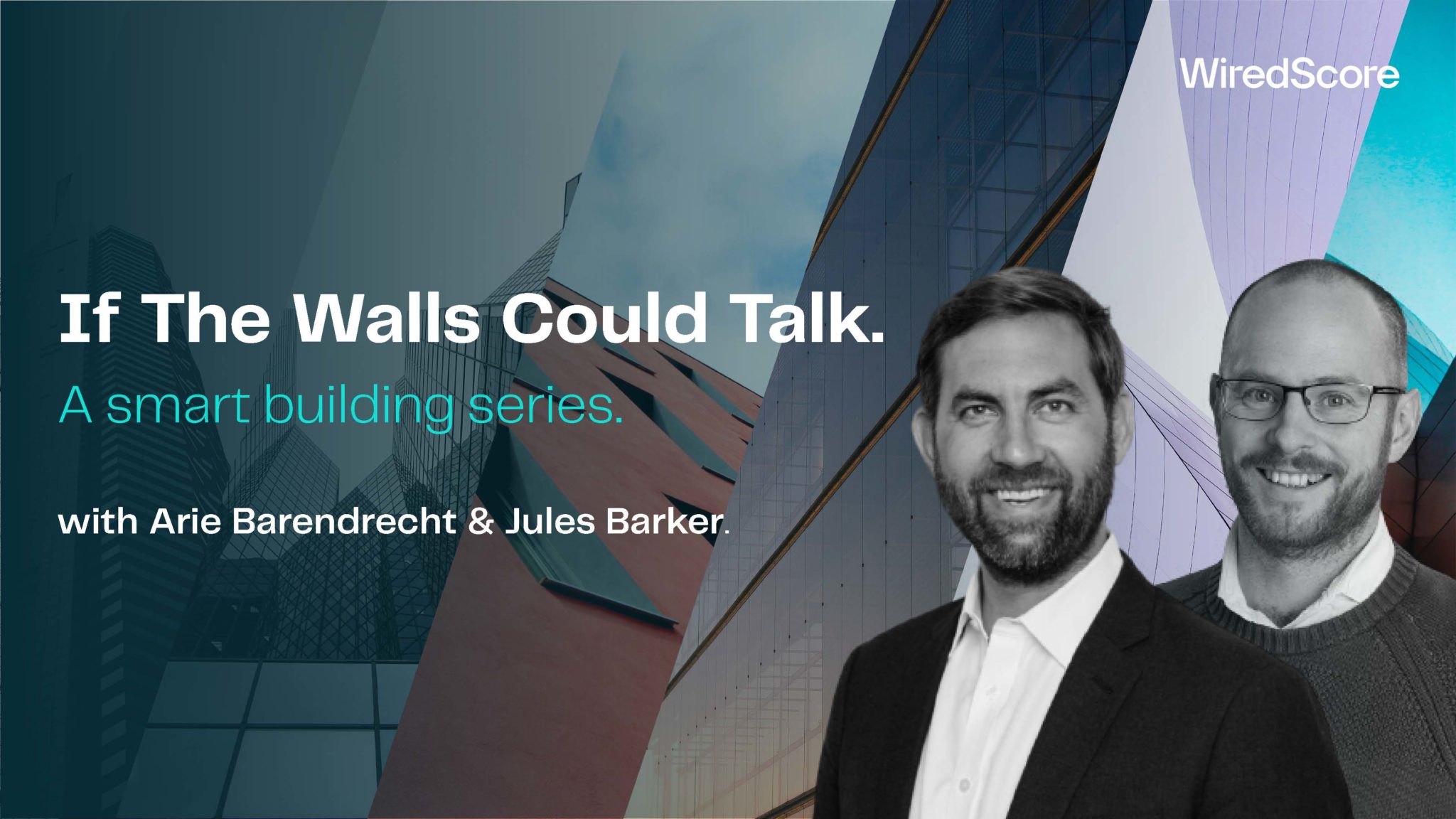How to approach creating a smart building.
Posted:
12 / 20 / 2021
Tagged:

If The Walls Could Talk is a series of conversations about smart buildings, connecting key thinkers in the property world with each other, and you.
The series delves deeper into the practicalities of how to create a smart building that works, delivers great user experiences and reduces its environmental impact on the built environment.
You’ll hear from landlords and developers, advisors and tenants in the smart building space all of whom bring their unique perspective on what does the term smart building actually mean and what it takes to create a smart building that works.
The series follows four key themes throughout and leaves you with practical takeaways from each conversation.
“‘Smart’ is an opaque subject for the industry – there is little agreement regarding what matters in a smart building: how to approach creating a smart building, how to work with the supply chain, or even what ‘smart’ itself means.
Topic one of If The Walls Could Talk answers these questions and discusses the critical areas to consider when specifying a building and instructing the supply chain, provides listeners with an understanding of what you need to do when during the development process, how to think about getting the outcomes you want, how to think about procurement and how to calculate return on investment.
How to approach creating a smart building. Episode 1.
Our first topic of If the Walls Could Talk starts right at the beginning and asks, how do you go about creating a smart building?
And our conversation is with John Gilbert, COO of Rudin Management Company, the major New York commercial Landlord (and one of the very first adopters of WiredScore back in 2013).
Listen to find out how Rudin Management Company makes decisions around what to include and what not to from a tech perspective, how they think about the returns of a smart building and what lessons have they learned on their “smart” journey.
Our first topic of If the Walls Could Talk starts right at the beginning and asks, how do you go about creating a smart building?
And our conversation is with John Gilbert, COO of Rudin Management Company, the major New York commercial Landlord (and one of the very first adopters of WiredScore back in 2013).
Listen to find out how Rudin Management Company makes decisions around what to include and what not to from a tech perspective, how they think about the returns of a smart building and what lessons have they learned on their “smart” journey.
Episode 2.
In the second episode of WiredScore’s smart building thought leadership series, If The Walls Could Talk, we speak with David Armour, Chief City Executive from Siemens about smart buildings.
David and Jules discuss the role of Siemens in the process of creating a smart building, the best way for landlords to procure tech for a building and how landlords can plan for tenants that they don’t yet have when committing to technologies.
In the second episode of WiredScore’s smart building thought leadership series, If The Walls Could Talk, we speak with David Armour, Chief City Executive from Siemens about smart buildings.
David and Jules discuss the role of Siemens in the process of creating a smart building, the best way for landlords to procure tech for a building and how landlords can plan for tenants that they don’t yet have when committing to technologies.
Episode 3.
Our third episode of the topic of ‘How to approach creating a smart building’ gets the perspective of a consultant. And our conversation is with Ana Cunha Cribellier, the International Real Estate Director and CSR Director for Deerns Group, an independent engineering consultancy firm that specializes in the field of MEP design, energy concepts and building physics.
Listen to find out what the process of creating a smart building looks like from the eyes of a consultant, how should a landlord, who doesn’t have a history of creating smart buildings, start creating one and what are the most frustrating challenges Deerns face when advising their clients through their smart journey.
Our third episode of the topic of ‘How to approach creating a smart building’ gets the perspective of a consultant. And our conversation is with Ana Cunha Cribellier, the International Real Estate Director and CSR Director for Deerns Group, an independent engineering consultancy firm that specializes in the field of MEP design, energy concepts and building physics.
Listen to find out what the process of creating a smart building looks like from the eyes of a consultant, how should a landlord, who doesn’t have a history of creating smart buildings, start creating one and what are the most frustrating challenges Deerns face when advising their clients through their smart journey.
Episode 4.
Our fourth and final episode of the topic of ‘How to approach creating a smart building’ summarizes the topic and pulls our key themes from the previous conversations.
In this episode, Arie Barendrecht chats to Jules Barker and Dave Miller from WiredScore, as they discuss the importance of having an outcome-driven approach as a driver for guiding a smart building journey, converged networks and finally, data.
Our fourth and final episode of the topic of ‘How to approach creating a smart building’ summarizes the topic and pulls our key themes from the previous conversations.
In this episode, Arie Barendrecht chats to Jules Barker and Dave Miller from WiredScore, as they discuss the importance of having an outcome-driven approach as a driver for guiding a smart building journey, converged networks and finally, data.